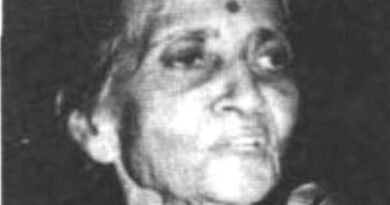A court of Pakistan bans ‘virginity test’
A Pakistani court has decided to stop the ‘virginity test’ of rape victims. Pakistan’s human rights supporters have welcomed this decision.
After this decision in Punjab province, the process of performing hymen checks and two-finger tests will be done.
Lahore High Court Judge Ayesha Malik said that this test is outrageous and does not provide any forensic help.
This decision has come on two petitions filed by human rights activists in Punjab province.
Supporters of human rights have long been demanding the closure of virginity tests in rape cases. He argued that it has no scientific basis.
This decision will be applicable in Punjab province but will serve as an example in the petitions in other provincial courts. One such petition is also in Sindh High Court.
The counsel for the petitioners in the Lahore case, Sameer Khosa, told the BBC that the verdict has proved that the virginity test has no forensic significance in any case related to sexual violence.
He hoped that the authority would reschedule its procedures after this decision and would say goodbye to the virginity test forever.
What is a two-finger test?
In a two-finger test, putting one or two fingers in a woman’s genitalia, it is seen whether there is hymen or not, in a way, to know whether the woman already had a physical relationship.
Many doctors claim that this test can show that for the first time physical relations have been made with a woman. If a woman had physical relations and she was a victim of rape, then her statement was rejected using this test.
The World Health Organization has categorically rejected the test that it has no scientific basis and is a violation of human rights.
In his judgment, Judge Ayesha Malik said, “This is a humiliating process which instead of focusing on the accused and sexual violence, is the act of doubting the victim.”
Lawyer Sahar Bandiyal, who filed a petition in the Lahore case, said that this test served to unseat women by taking an unscientific assessment of their sexual history.
He said, “It was useful to show the matter in such a way that the woman would be easily available and perhaps herself would be ready for physical relations.”
This problem is worldwide
Women rights activists have been saying for a long time that the so-called virginity test is part of the patriarchal culture and because of this, women are blamed for sexual violence.
Very few rape cases are reported in Pakistan because the rape victim is seen as a social stigma.
In cases where reports are made, very few accused are found guilty due to weak law and complicated procedures.
In September, a woman was gang-raped in front of her children. The woman’s car broke down on the roadside. There was anger across the country about this incident and protests took place in many places. After this, the President passed the new strict rape bill in which there was talk of speeding up the trial.
But, this virginity test is still valid in many areas of Pakistan where the decision of Lahore will not be applicable. This practice has been going on in South Asia since colonial times and according to the United Nations and World Health Organization, it is going on in at least 20 countries.
In recent years, both organizations have launched a campaign to end this practice internationally.
In India, this test was discontinued in 2013 and the decision was also mentioned by Judge Ayesha Malik in his decision. Bangladesh has closed this test in 2018. In Afghanistan, it has been closed in 2018, but the independent Human Rights Commission of the country told in September that women are still going to undergo this test.
Small part of a big problem
Pakistan’s Science and Technology Minister Chaudhary Fawad welcomed the decision on Monday, calling it a historic decision.
In a Twitter thread being shared a lot, activist Aiman Rizvi told how he and his fellow activist Zainab Hussain had shown a video report after which the petition was filed in the Punjab court. Rizvi writes, “I am thankful to all the women who fought this battle for decades and will continue to fight tomorrow. But let us not forget that the remaining women are only a small part of the problem.”




